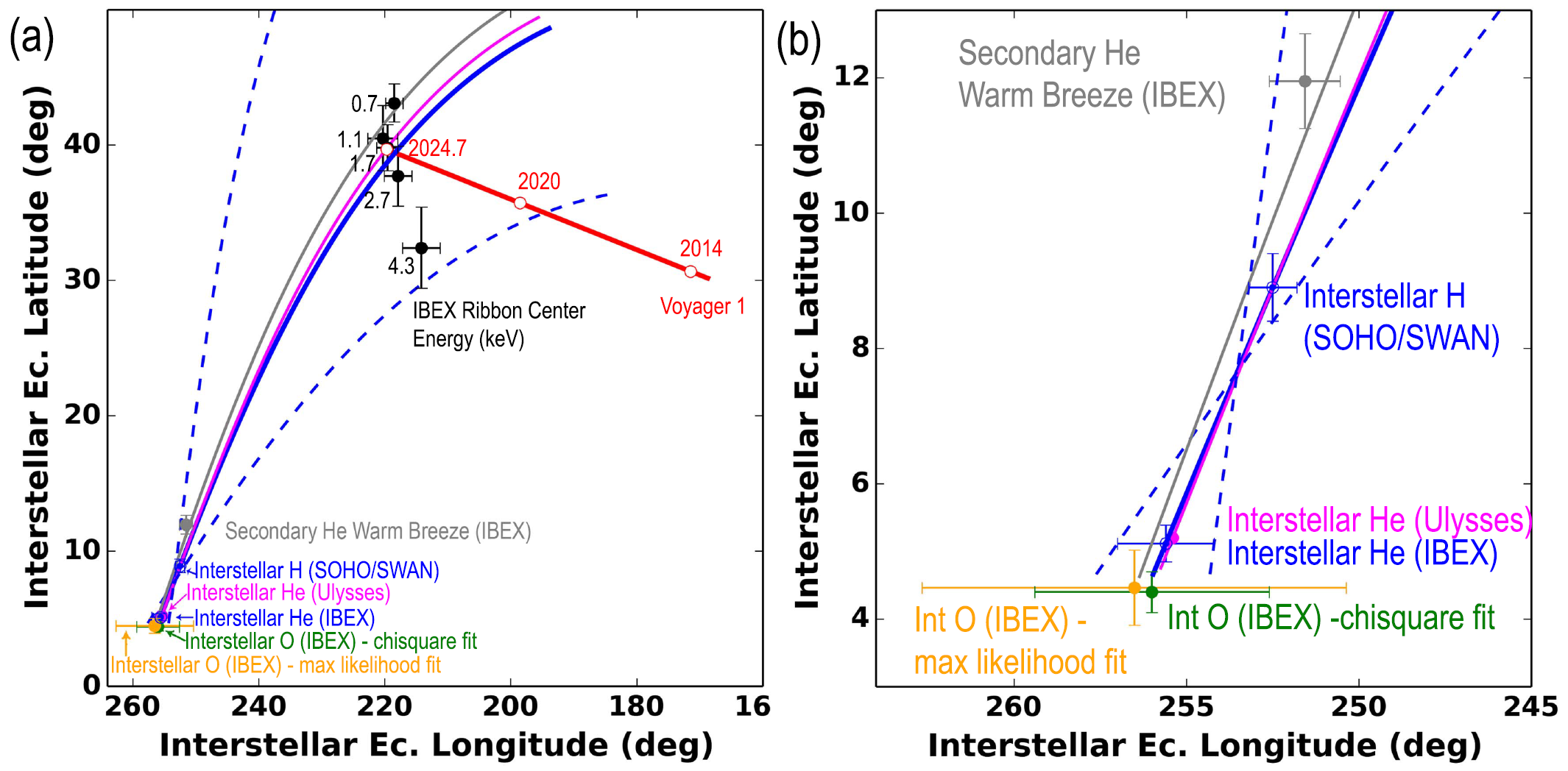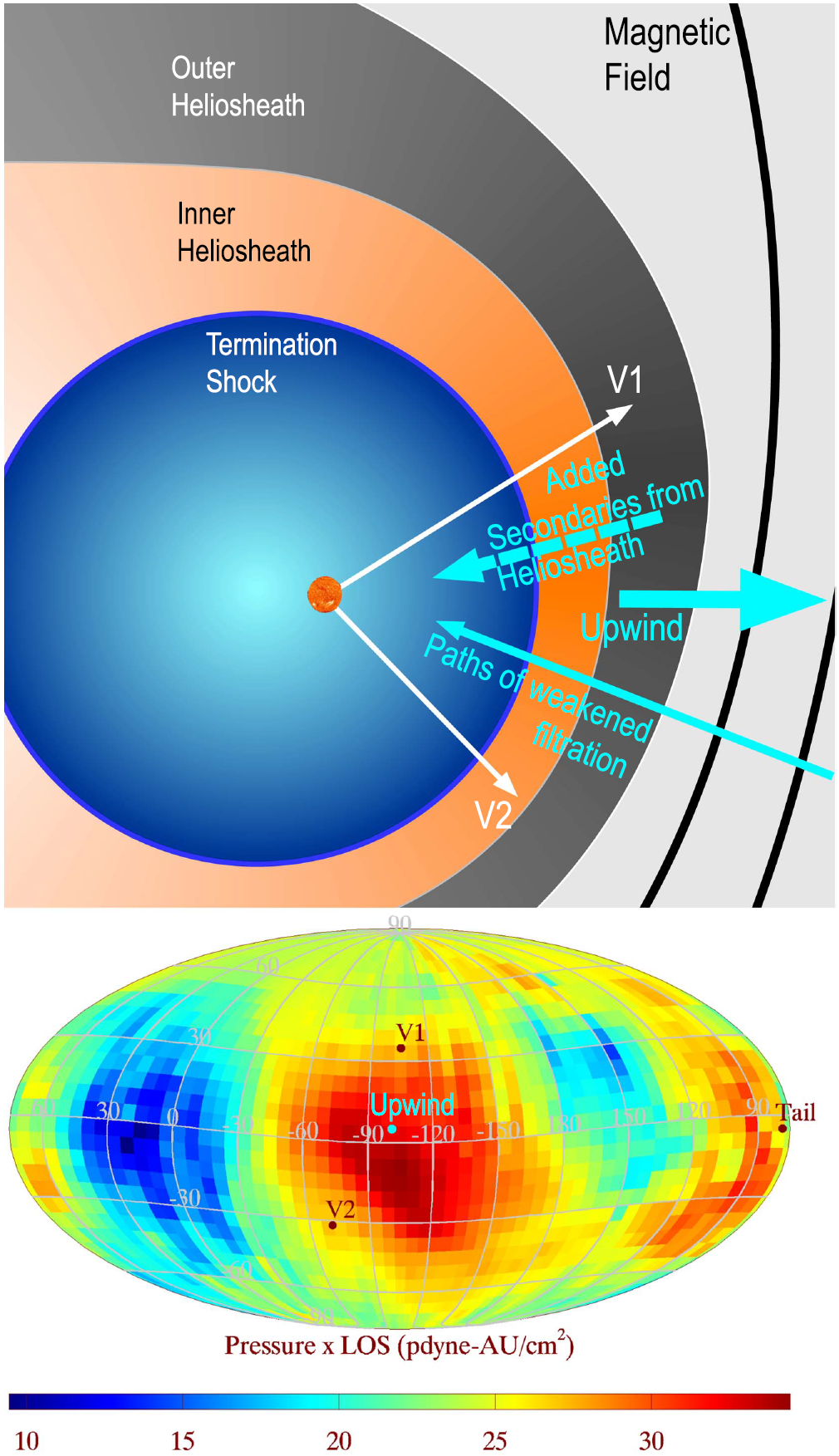

by Schwadron et al.
Abstract: The direct measurements of interstellar matter by the Interstellar Boundary Explorer (IBEX) mission have opened a new and important chapter in our study of the interactions that control the boundaries of our heliosphere. Here we derive for the quantitative information about interstellar O flow parameters from IBEX low-energy neutral atom data for the first time. Specifically, we derive a relatively narrow four-dimensional parameter tube along which interstellar O flow parameters must lie. Along the parameter tube, we find a large uncertainty in interstellar O flow longitude, 76.0° ± 3.4° from χ2 analysis and 76.5° ± 6.2° from a maximum likelihood fit, which is statistically consistent with the flow longitude derived for interstellar He, 75.6° ± 1.4°. The best-fit O and He temperatures are almost identical at a reference flow longitude of 76°, which provides a strong indication that the local interstellar plasma near the Sun is relatively unaffected by turbulent heating. However, key differences include an oxygen parameter tube for the interstellar speed (relation between speed and longitude) that has higher speeds than those in the corresponding parameter tube for He, and an upstream flow latitude for oxygen that is southward of the upstream flow latitude for helium. Both of these differences are likely the result of enhanced filtration of interstellar oxygen due to its charge-exchange ionization rate, which is higher than that for helium. Furthermore, we derive an interstellar O density near the termination shock of \( 5.8_{-0.8}^{+0.9} \) x 10-5 cm−3 that, within uncertainties, is consistent with previous estimates. Thus, we use IBEX data to probe the interstellar properties of oxygen.

